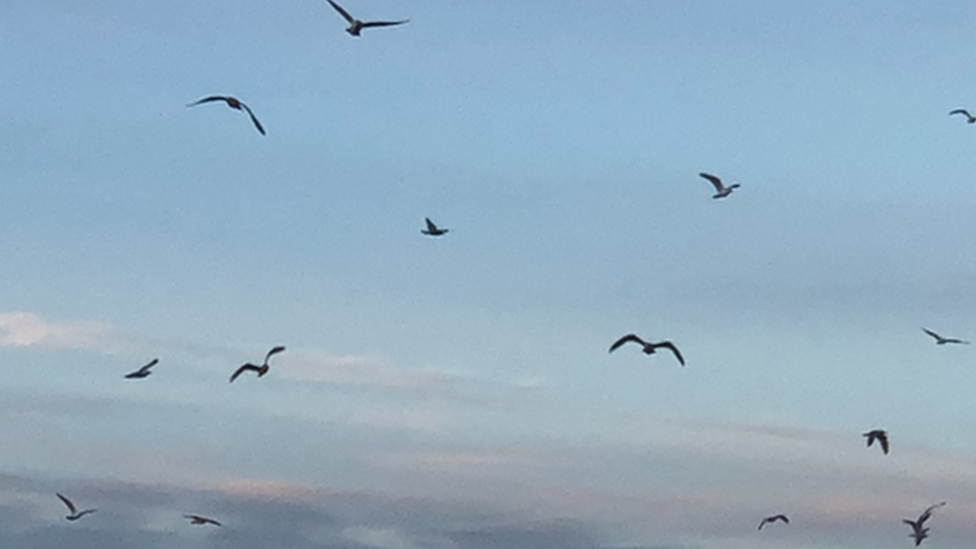Bird flu confirmed in Wolverhampton's goose population
- Published
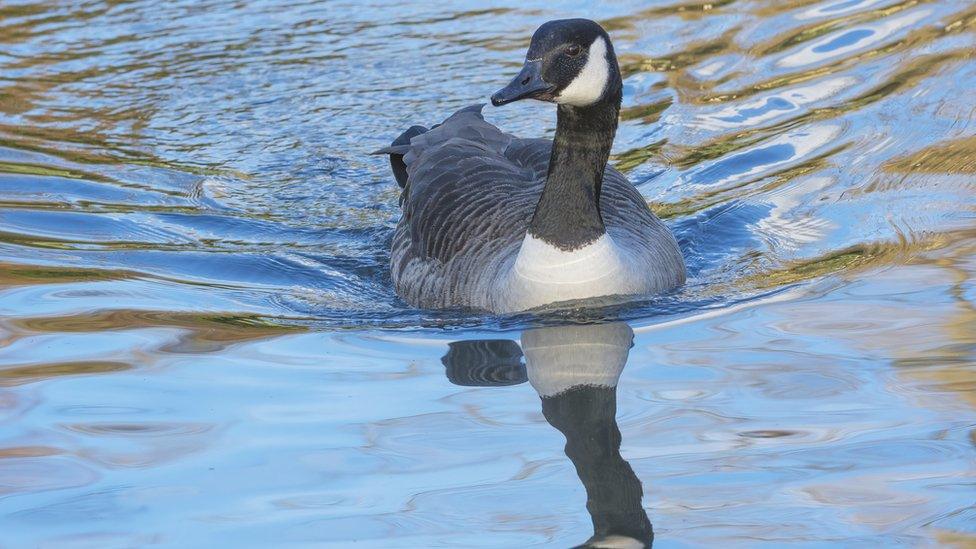
Canada geese at Wolverhampton's West Park have been affected
Bird flu has been confirmed among Wolverhampton's wild goose population.
Local authorities said the outbreak had been identified among Canada geese at West Park in the city.
Public health officials said the risk to people was low however it was "vital" to avoid contact with any dead birds in the area.
Earlier this month, the UK's chief veterinary officer said there was a "phenomenal level" of avian flu in the country.
The strain was first detected among rescued swans and captive poultry at a swan sanctuary in Worcester on 15 October and by November cases were also being reported in Warwickshire.
Wolverhampton City Council said it was working with agencies to "manage the situation" and minimise the risk to public health as well as other animals.
"I would like to reassure residents that the risk of them catching avian flu is very low," John Denley, Wolverhampton's director of public health, said.
"This is an infectious virus which spreads among birds and it is very unusual for humans to be affected. However, we are issuing a precautionary warning as it is possible for humans to catch the virus through close contact with an infected bird, dead or alive."
The clinical sign of infection is that birds tend to go off their food and water, then develop respiratory problems, eye discharges and sneezing.
The council urged anyone concerned about birds in the area to report it.

Follow BBC West Midlands on Facebook, external, Twitter, external and Instagram, external. Send your story ideas to: newsonline.westmidlands@bbc.co.uk, external
Related topics
- Published15 December 2021
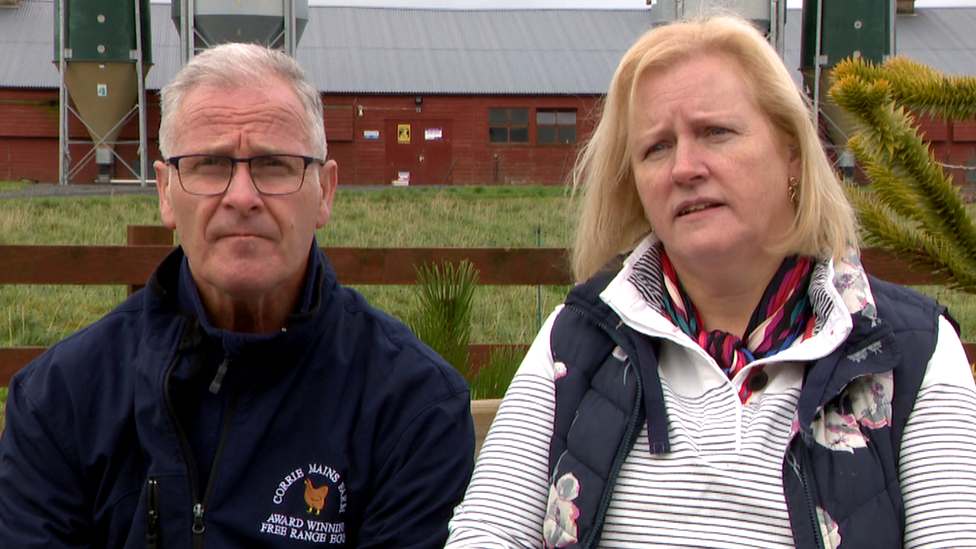
- Published12 December 2021
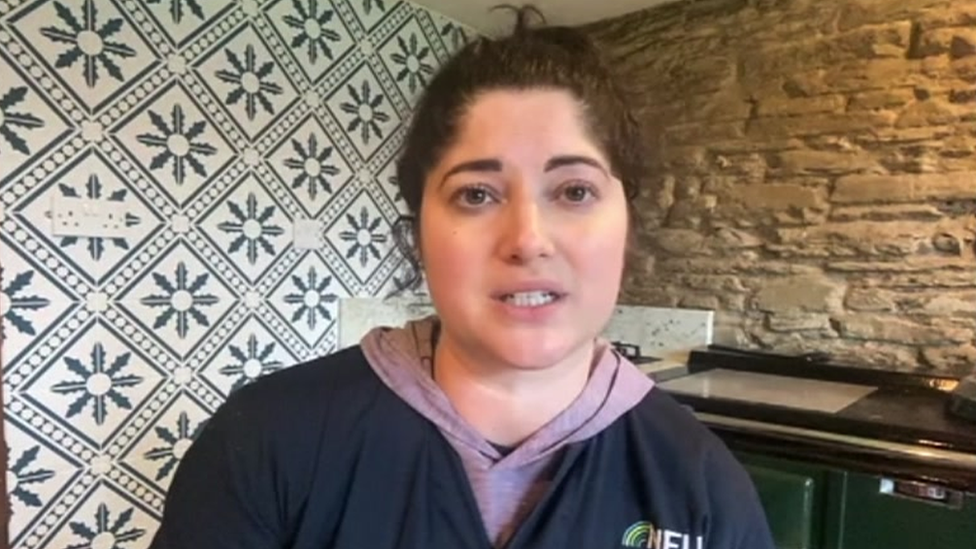
- Published9 December 2021
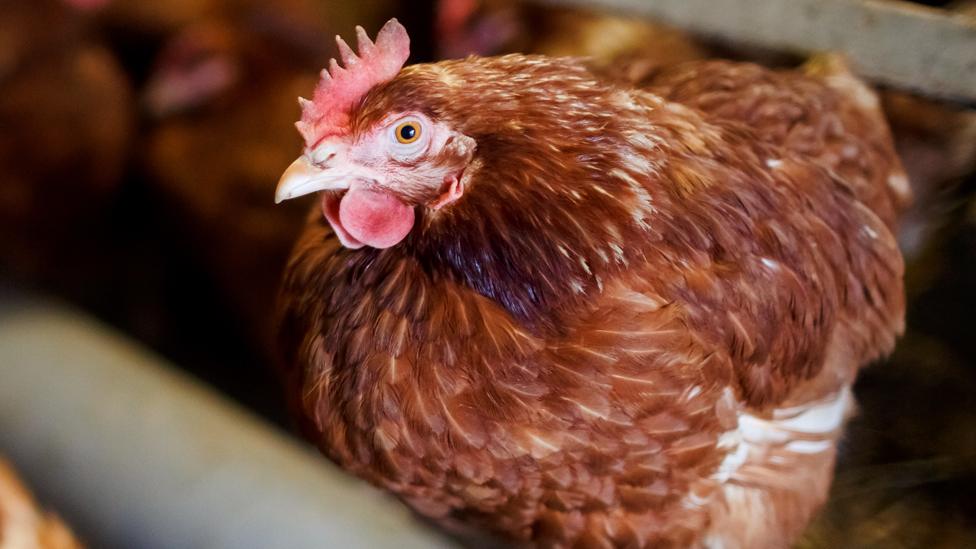
- Published12 November 2021
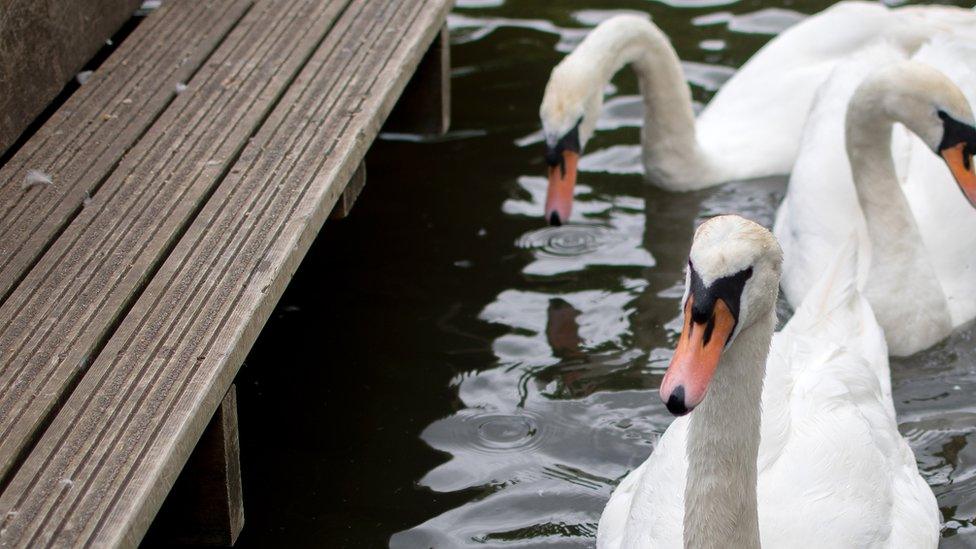
- Published26 October 2021
